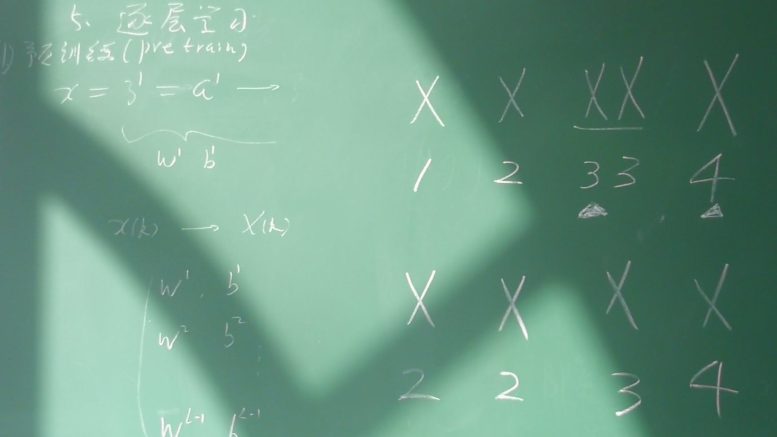Each local school division in Virginia must locate, identify, evaluate, and provide a free appropriate public education to all children with disabilities residing in its district. This on-going effort to locate children with disabilities is required by the Individuals with Disabilities Education Act and Section 504 of the Rehabilitation Act of 1973.
The Wythe County Public School System offers a variety of special education programs serving children ages 2 to 21, inclusive, and provide a free appropriate public education. Children with disabilities whose second birthday falls on or before Sept. 30 or who have not reached their 22nd birthday on or before Sept. 30 of the current school year can be considered for these services.
In order to identify and place children with disabilities, the Wythe County School Division follows several procedures. A child may be referred by a teacher, parent, physician, outside agency, staff member or concerned citizen. To make a referral, the individual need only contact the child’s teacher or building administrator.
Once written parental consent is obtained and parents have been informed of their rights, and given Virginia Special Education Procedural Safeguards Requirements under the Individuals with Disabilities Education Act and Written Notification, the evaluation process begins. This process ensures that each child is assessed by a qualified professional in all areas related to the suspected disability, including, when appropriate, health, vision, hearing, social and emotional status, general intelligence, academic performance, communicative status, and motor abilities. All of this testing is free of charge to parents. When the evaluations are completed, a committee meets to decide if the child qualifies for special education.
A child may qualify for one or more programs depending on the disability:
Autism – means a developmental disability significantly affecting verbal and nonverbal communication and social interaction, generally evident before age three, that adversely affects a child’s educational performance. Other characteristics often associated with autism are engagement in repetitive activities and stereotyped movements, resistance to environmental change or change in daily routines, and unusual responses to sensory experiences. Autism does not apply if a child’s educational performance is adversely affected primarily because the child has an emotional disturbance. A child who manifests the characteristics of autism after age three could be identified as having autism if the criteria in this definition are satisfied.
Deaf-Blindness – means simultaneous hearing and visual impairments, the combination of which causes such severe communication and other developmental and educational needs that they cannot be accommodated in special education programs solely for children with deafness or children with blindness.
Deafness – means a hearing impairment that is so severe that the child is impaired in processing linguistic information through hearing, with or without amplification, that adversely affects the child’s educational performance.
Developmentally Delayed – means a disability affecting a child ages 2 by Sept. 30 through 6, Who is experiencing developmental delays, as measured by appropriate diagnostic instruments and procedures, in one or more of the following areas: physical development, cognitive development, communication development, social or emotional development, or adaptive development, or who has an established physical or mental condition that has a high probability of resulting in developmental delay; The delay(s) is not primarily a result of cultural factors, environmental or economic disadvantage, or limited English proficiency; and The presence of one or more documented characteristics of the delay has an adverse affect on educational performance and makes it necessary for the student to have specially designed instruction to access and make progress in the general educational activities for this age group.
Emotional Disability – means a condition exhibiting one or more of the following characteristics over a long period of time and to a marked degree that adversely affects a child’s educational performance: An inability to learn that cannot be explained by intellectual, sensory, or health factors; An inability to build or maintain satisfactory interpersonal relationships with peers and teachers; Inappropriate types of behavior or feelings under normal circumstances; A general pervasive mood of unhappiness or depression; or A tendency to develop physical symptoms or fears associated with personal or school problems.
Hearing Impairment – means an impairment in hearing in one or both ears, with or without amplification, whether permanent or fluctuating, that adversely affects a child’s educational performance but that is not included under the definition of deafness in this section.
Intellectual Disability – means the definition formerly known as “mental retardation” and means significantly subaverage general intellectual functioning, existing concurrently with deficits in adaptive behavior and manifested during the developmental period that adversely affects a child’s educational performance.
Multiple Disabilities – means simultaneous impairments (such as intellectual disability with blindness, intellectual disability with orthopedic impairment), the combination of which causes such severe educational needs that they cannot be accommodated in special education programs solely for one of the impairments. The term does not include deaf-blindness.
Orthopedic Impairment – means a severe orthopedic impairment that adversely affects a child’s educational performance. The term includes impairments caused by congenital anomaly, impairments caused by disease (e.g., poliomyelitis, bone tuberculosis, etc.), and impairments from other causes (e.g., cerebral palsy, amputations, and fractures or burns that cause contractures).
Other Health Impairments – means having limited strength, vitality or alertness, including a heightened alertness to environmental stimuli, that results in limited alertness with respect to the educational environment, that is due to chronic or acute health problems such as asthma, attention deficit disorder or attention deficit hyperactivity disorder, diabetes, epilepsy, a heart condition, hemophilia, lead poisoning, leukemia, nephritis, rheumatic fever, sickle cell anemia and Tourette syndrome that adversely affects a child’s educational performance.
Specific Learning Disability – means a disorder in one or more of the basic psychological processes involved in understanding or in using language, spoken or written, that may manifest itself in the imperfect ability to listen, think, speak, read, write, spell or to do mathematical calculations, including conditions such as perceptual disabilities, brain injury, minimal brain dysfunction, dyslexia, and developmental aphasia. Specific learning disability does not include learning problems that are primarily the result of visual, hearing, or motor disabilities; of intellectual disabilities; of emotional disabilities; of environmental, cultural, or economic disadvantage.
Dyslexia is distinguished from other learning disabilities due to its weakness occurring at the phonological level. Dyslexia is a specific learning disability that is neurobiological in origin. It is characterized by difficulties with accurate and/or fluent word recognition and by poor spelling and decoding abilities. These difficulties typically result from a deficit in the phonological component of language that is often unexpected in relation to other cognitive abilities and the provision of effective classroom instruction. Secondary consequences may include problems in reading comprehension and reduced reading experience that can impede growth of vocabulary and background knowledge.
Speech or Language Impairment – means a communication disorder, such as stuttering, impaired articulation, expressive or receptive language impairment, or voice impairment that adversely affects a child’s educational performance.
Traumatic Brian Injury – means an acquired injury to the brain caused by an external physical force, resulting in total or partial functional disability or psychosocial Impairment, or both, that adversely affects a child’s educational performance. Traumatic brain injury applies to open or closed head injuries resulting in impairments in one or more areas, such as cognition; language; memory; attention; reasoning; abstract thinking; judgment; problem-solving; sensory, perceptual, and motor abilities; psychosocial behavior; physical functions; information processing; and speech. Traumatic brain injury does not apply to brain injuries that are congenital or degenerative, or to brain injuries induced by birth trauma.
Visual Impairment including Blindness – means an impairment in vision that, even with correction, adversely affects a child’s educational performance. The term includes both partial sight and blindness.
An Individualized Education Program (IEP) is developed for each student previously identified as eligible to receive special education and related services and functions to provide an appropriate education for that student. The child’s teacher, parent, school administrator, the child, if appropriate, and other individuals, at the discretion of the parents or school division, develop the individual education program for the student. The program is reviewed and updated at least annually. Eligibility for special education programs and services is reviewed at least every three years.
Each school division in the Commonwealth of Virginia is responsible for the identification, evaluation, and placement associated with the provision of a free and appropriate public education for all students with disabilities residing within the division. The educational setting for the provision of special education services is the environment determined to be the least restrictive for the individual child.
More information regarding each program or service provided for a student with disabilities may be obtained by writing to the Special Education Department at Wythe County Public Schools, 1570 W. Reservoir St., Wytheville, VA 24382 or by telephoning them at 276-228-5411.






